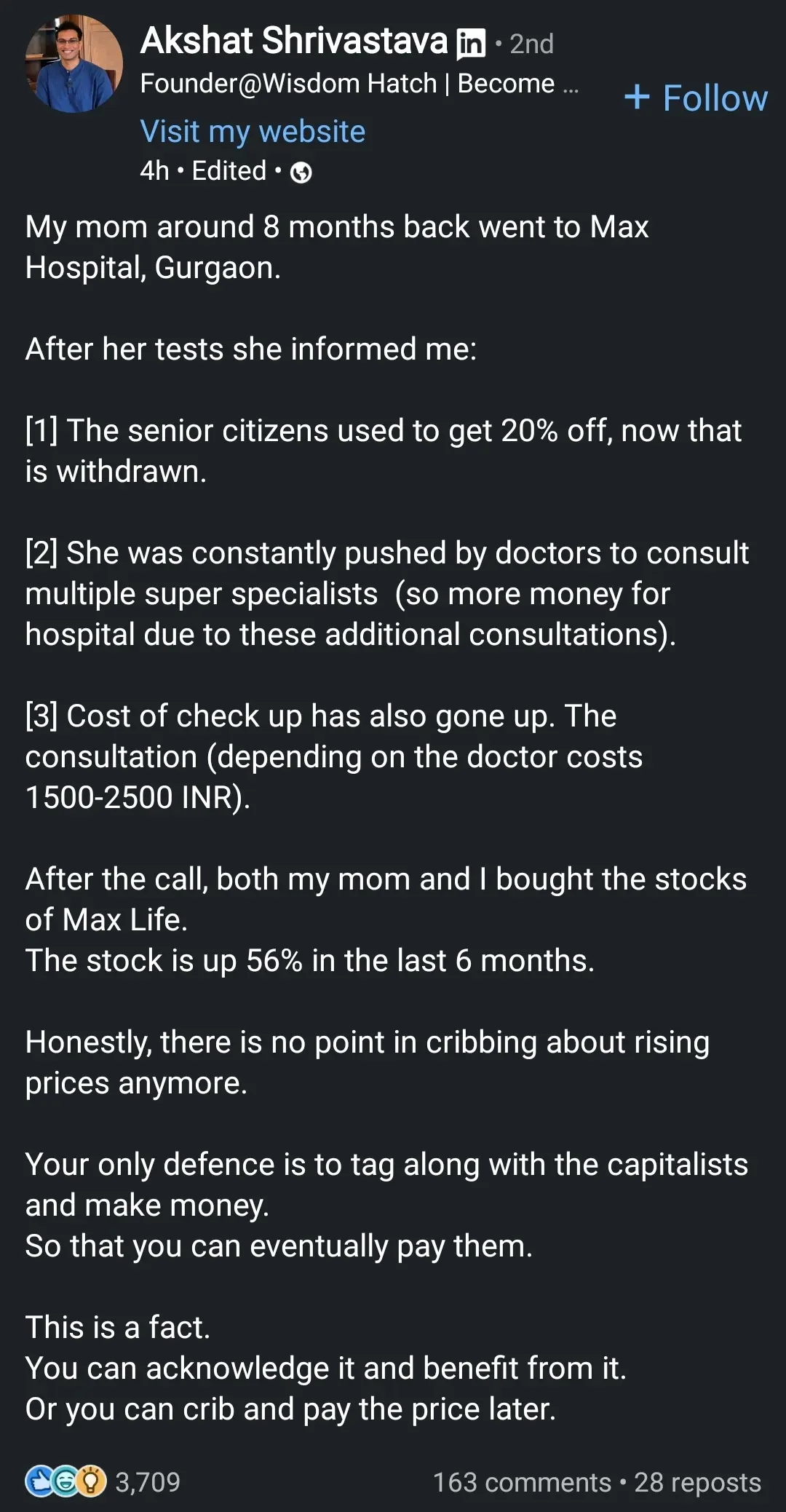this post was submitted on 19 Feb 2024
313 points (95.9% liked)
LinkedinLunatics
3580 readers
53 users here now
A place to post ridiculous posts from linkedIn.com
(Full transparency.. a mod for this sub happens to work there.. but that doesn't influence his moderation or laughter at a lot of posts.)
founded 1 year ago
MODERATORS
you are viewing a single comment's thread
view the rest of the comments
view the rest of the comments

There's a huge difference between emergency, life threatening care and relatively routine care. For example, if I need to get a tooth extracted, I can certainly wait to shop around a bit, and living with some pain for a few days could be worth finding a cheaper solution. I can also choose between hospitalization and self-care in many circumstances as well (e.g. normal baby delivery can happen at home or in the hospital).
For those cases where informed decisions are possible, supply and demand can work efficiently. It doesn't work as well when there's a monopoly on care, like in an ER, ambulances, etc.
And no, you don't need to be a physician to be informed, you just need to consult one. I may not know the practical difference between operations, but I do understand chances of success and costs, and I know how to get multiple opinions and decide from there. That works for any field, I can convert a problem from needing an expertise to evaluating experts. Tell me what expected outcomes, the chances of various outcomes, and the costs, and I'll get a second or third opinion if I'm not satisfied.
This gets even better the more transparent things are, because other experts can do independent reviews. A newspaper, for example, can hire a physician to review posted prices for routine operations and give an idea of how realistic those costs are. Insurance companies so exactly that, so I don't see why a private organization couldn't. News organizations routinely consult experts on stories.
But there are areas where there's a monopoly, and those mess up the market's ability to regulate prices. That's why I'm in favor of universal coverage for emergency care, but against universal coverage for other forms of care.